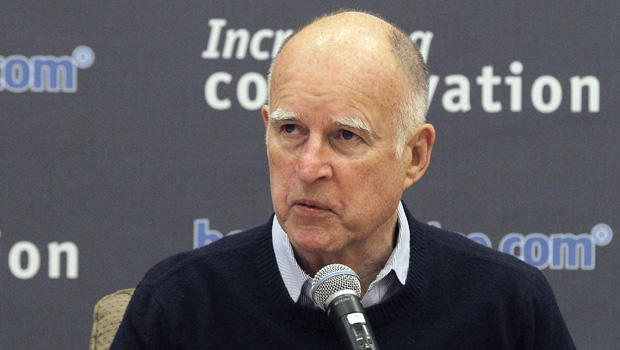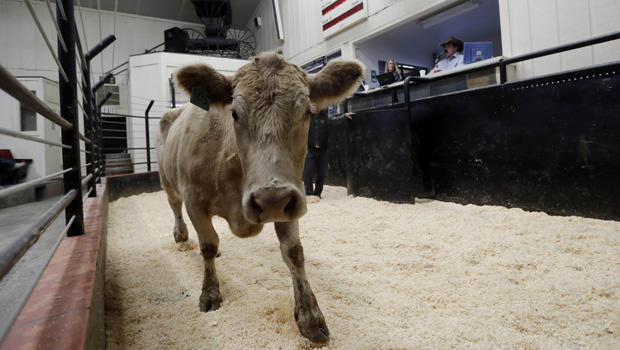As California's drought worsens, Gov. Brown urges conservation
LOS ANGELES - Gov. Jerry Brown provided some very practical guidance for Californians amid a deepening drought: Take shorter showers, turn off the water while brushing teeth, and "don't flush more than you need to."
"Make no mistake, this drought is a big wakeup call," Brown said Thursday in downtown Los Angeles before meeting with local water district officials. "Hopefully it's going to rain. If it doesn't, we're going to have to act in a very strenuous way in every part of the state to get through."
The governor's pragmatic plea came as wet weather finally moved through northern portions of the state, which has been in an extraordinary dry period during what is normally the time for rain and snow.
But the stingy storm system was squeezing out only dribs and drabs of moisture in most areas. The National Weather Service office in San Francisco reported rainfall amounts since Wednesday night generally were a few hundredths to a tenth of an inch."Needless to say the rain is a welcome sight but does little for drought relief," the weather service wrote.
Snow - heavy in places - was falling in the Sierra Nevada just in time for the latest measurement of snow depth. The peaks of the towering range normally store a huge amount of the state's water supply in the form of snowpack, but the previous survey earlier this month found the snow water equivalent was just 17 percent of normal. The brown peaks were visible in satellite photos from space.
Brown, who declared a drought emergency Jan. 17, met behind closed doors with water agency officials serving the vast population of Southern California, where banked supplies are keeping crisis at bay for the time being, but the future is being eyed with caution.
The situation, however, is not uniform throughout California, where 38 million residents share the water supply with a vast farming industry and a host of sensitive environments such as rivers where low flows can threaten fisheries.
Brown said water conservation may be voluntary now, but "every day this drought goes on, we're going to have to tighten the screws on what people are doing."
Brown acknowledged there is a geographic divide when it comes to water politics.
"I'm going to do my best to unite this state. Water is something that we share, and we have a common interest in maximizing the economic well-being of the state. And one does that by using water wisely," he said.
The Metropolitan Water District of Southern California said it's looking for ways to help water agencies to the north. During the state's worst drought, in 1977, the district had a surplus in its reservoir in Northern California that it was able to transfer to Marin County. But that's not the case this time around.
The district said decades of aggressive water conservation and other measures have prevented a water crisis in Southern California. It's urging residents to voluntarily cut water use and will ask that its board approve rebates for water conservation.
The district's general manager, Jeffrey Kightlinger, said he doesn't expect to impose mandatory water cutbacks this year.
"We're pretty prepared for this drought. We have ample storage. We are in pretty sound shape."
But he acknowledged there are parts of the state where the situation is different.
"Since this is a one-state issue, we're going to look for how best we can help the rest of the state while retaining our reliability here," he said.

